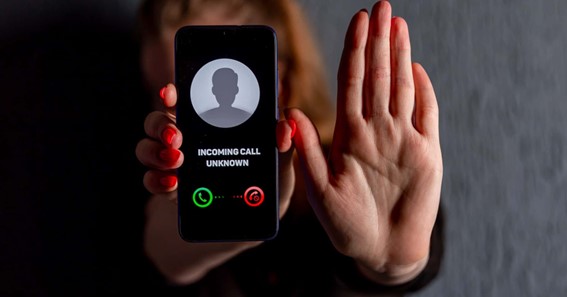The best way to protect yourself from scams is to use common sense and be vigilant. If you are someone who loves to know the identity of people who call you on your phone, then you should definitely use CallMsg.app. This app not only gives you the caller’s name, but also provides their complete contact details like email address, phone number and much more.
If you have a smartphone and an internet connection, then this app can help you identify all the unknown calls that come to your phone number. All you have to do is forward all unknown calls to this number and we will show you where they came from and Who Called Me from This Phone Number?
CallMsg.app provides a user-friendly interface with a large database of numbers in different countries around the world. You can even connect it with your social media accounts so that we can show you all the contact details of people who have already contacted you on those platforms too!
CallMsg.app. is a free calling app that helps you find out who called you from the number that was dialed on your phone. The app uses the mobile network’s call records to tell you who called you, when and for how long. You can also see how many minutes were used on each call, as well as how many calls were made in total and how long each lasted.
By giving users access to this information, Call Message hopes to encourage them to use it responsibly. The app has no advertisements and does not collect any personal information about its users. It also doesn’t store any information about calls made by other users, so there’s no way for Call Message to identify them if they’re using a different phone number than their own.
“How do I find out who called me?”
That’s the question that everyone has asked at one point or another. We all want to know who is calling us, and what they want. It can be annoying when someone calls you and you have no idea who it is.
The answer to this question is simple—you just need to check your phone log. The phone log will show you who called you, when they called you, and how long they have been calling for. It also shows you how many times they’ve called in a day, week or month.
Here are some tips to protect:
There are some scams that you can’t avoid. You just have to be aware of them and know how to protect yourself from them.
- Never give out your social security number or any other personal information over the phone, even if it’s a legitimate business.
- Never agree to send money via Western Union, MoneyGram or other wire transfer services unless you’ve done this before and know the company is legitimate.
- Do not give out your credit card information over the phone unless you are 100% sure it’s a legitimate company.
- If someone requests that you send money via Western Union, MoneyGram or other wire transfer services, call the police or report it to your local FBI office immediately.
- Protecting yourself from scammers by using CallMsg.app, so if they ask for your Social Security number, bank account number or credit card information, it’s probably a scammer trying to steal your identity.
- Don’t agree to wire money unless you know who you’re sending it too. Many times scammers will try to steal your identity by posing as an attorney or other official-looking person and telling people they need money wired right away because of an emergency situation involving their child or parent or another loved one that needs medical attention overseas. However, if the caller doesn’t have a law enforcement agency badge on hand, don’t agree to wire money — it’s just a way for crooks to get your bank account number so they can withdraw the funds from your account once they’ve gotten their hands on it.
If someone contacts you asking for help with a legal issue
The safest way to protect yourself from scams is to know what they are and how they work.
Here’s some information on scams you might encounter:
Scams can be hard to spot because they look like normal business transactions. You may send money or goods to someone who tells you that they will send you back far more than you sent. They promise great returns on investments and make big promises about the money you’ll make.
Sometimes, the person who scammed you will pretend to be a government agency or police department and threaten to arrest you if you don’t pay up. They might even use fake identification when making the call.
If someone calls from out of state, but says he’s from your town, it could be a scammer trying to get money from people in your area. If someone calls from out of state but doesn’t know anyone in your town, it could be a scammer trying to get information about where other people live in order to find victims for his scams.
If someone calls and asks for personal information over the phone, it may be because he knows where you live or works with law enforcement agencies that are investigating him or his company, which may have been involved with some sort of scam activity before.







